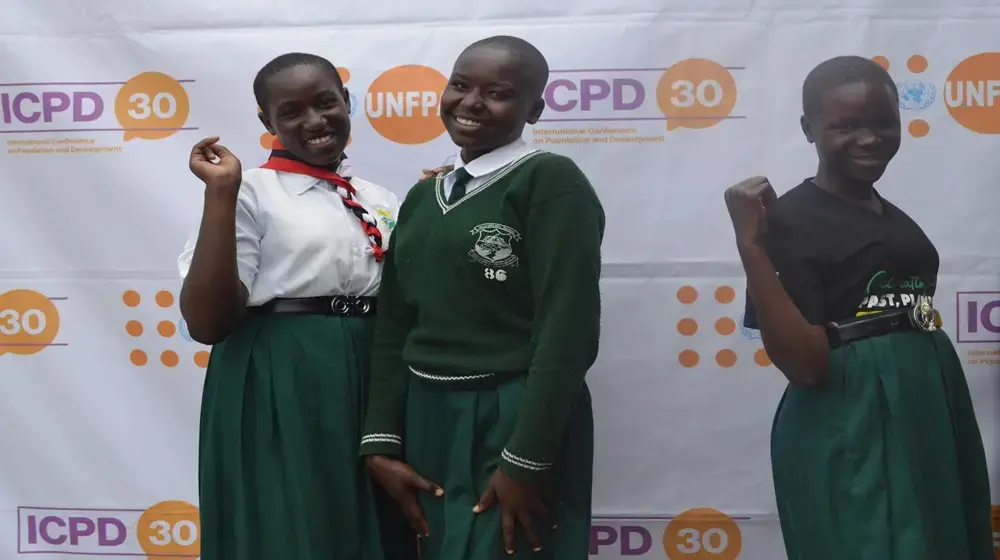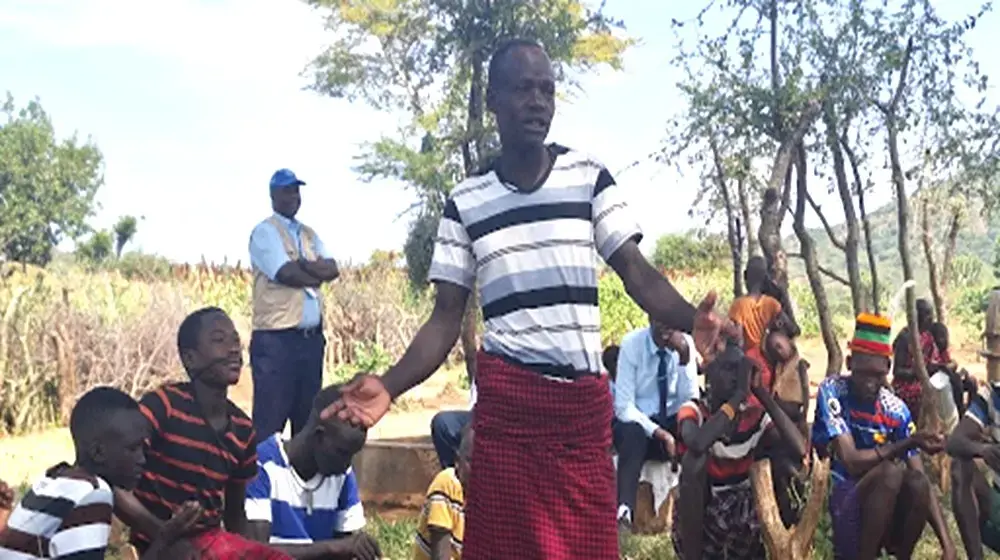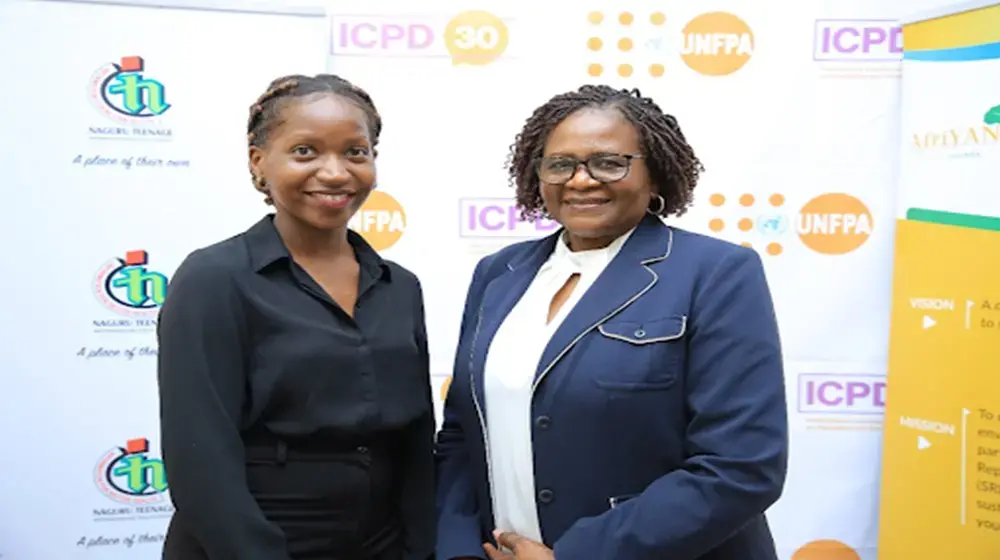The Design Hub, located in a warehouse in Uganda’s industrial centre is not the typical meeting room for formal events. But on this occasion it could not have been more perfect. The hub provided a relaxed environment for a lively and frank discussion on sexual and reproductive health issues among young people, representatives of religious and civil society organizations and government officials. The dialogue, held on July 6 was organised by UNFPA, the Embassies of the Netherlands and Sweden in Uganda and Reach a Hand Uganda, ahead of the 2017 World Population Day.
Held under the global theme for World Population Day: Family Planning: Empowering People, Developing Nations, the dialogue was intended to provide a platform for young people to share ideas with policy makers and other stakeholders on how to improve their access to sexual reproductive health information and services.
Panel discussion
A diverse panel made up of Ivan Mbaze and Anita Kwaga two young peer educators; Reverend Gideon Byamugisha an Anglican priest and HIV activist; Dr. Jotham Musinguzi the Director of the National Population Council and H.E. Henk Jan Bakker the Ambassador of the Netherlands to Uganda set the pace for the dialogue. The panelists each shared their views on the challenges young people face in accessing sexual and reproductive health services. And for UNFPA Uganda Representative Alain Sibenaler, the composition of the panel certainly hit the mark:
“I have been in four countries before but I haven’t seen this; where you have government ministers, reverends and ambassadors speaking up, fostering dialogue with young people. It is about getting different generations, different points of view together and trying to get the best out of that,” he said.
As religious leaders we we are now blaming young people less and supporting them more; with information, skills and services
And indeed the best came out in the panels submissions: In response to the issue of challenges young people face in accessing youth friendly reproductive health services, Reverend Byamugisha, led the way by apologizing to young people for what he said was the Church’s long time opposition to family planning and failure to support young people.
“I wanted to apologize on behalf of my fellow religious leaders; we did not fully appreciate the challenges faced by young people but we have made progress, 25 years down the road” the priest said. “Now we know the difference between refusing to abstain and failing to abstain, therefore we are now blaming young people less and supporting them more; with information, skills and services”.
Young people’s reproductive health critical to development
Access to family planning and sexual and reproductive health services is key to reducing poverty. For Uganda to meet its development goals as stated in Vision 2040, total fertility rate must reach 2.2 by 2040 and at the same time the GDP growth rate must rise from 4.6 to 12 percent.
Uganda’s Demographic Dividend Report 2014 illustrates that investing in family planning would accelerate fertility decline. Coupled with mortality decline, the ratio of working-age adults would significantly increase relative to young dependents, thus propelling economic growth.
But, as the panelists and other participates in the audience pointed, out Uganda still faces several challenges in making access to reproductive health services a reality and, therefore, in achieving the Vision 2040 ideals.
Caroline Aruho one of the participants noted that the youth organisation she works for has documented a number of obstacles including an unwillingness to provide young people with accurate information on sexual and reproductive health. “What has gone wrong is there is lack of information. We have this thing of not giving youth comprehensive sex education information. When we sugarcoat the reality this is what comes out,” she said in reference to the high rates of teenage pregnancy in the country.
Greater support for young people is the way to go
As the discussion gained momentum there were many views, sometimes dissenting, especially about how to define sexuality education. But what was not contested was the fact that young people do need support to access accurate information and services. And this support, the participants were in agreement, must come from parents, communities the government, religious and civil society organisations.
“It is very difficult to reach many people in this country. The only solution to tackle that is for everybody to work together. Government, NGOs, development partners should have the same vision on how to reach out to all these young Ugandans that need these services,” said H.E. Henk Jan Bakker.
Hon. Jane Ruth Aceng, the Minister of Health and guest of honour at the event urged young people to not just demand their entitlements to health but also play their role in ensuring they remain healthy. “My message to you is you need to be responsible people in society. Every step you take ask yourself, is it the right step? What does it mean to my future? What does it mean to my country,” Achieng implored the young people.
Mr. Sibenaler concluded the discussion by pointing to three strategies that he said were important to moving the agenda on young people in Uganda: youth sensitive budgeting, inclusion and innovation. He pledged UNFPA support to the government and other partners to ensure that young people are front and centre of the budgeting process. He also pledged support towards innovation noting that already, in partnership with the Ministry of Health and young people UNFPA has supported the development of a number of mobile applications to enable young people access sexual and reproductive health information.
On inclusion, Mr. Sibenaler noted that it is not enough to acknowledge young people’s energy and but to take actual steps to make them part of the development of solutions. “Inclusion is about facilitating young people to come and advise us. We are opening UNFPA offices for you to sit next to us, us side by side so that you can advise us on what you think is best for Uganda,” he pledged.
By Martha Songa




